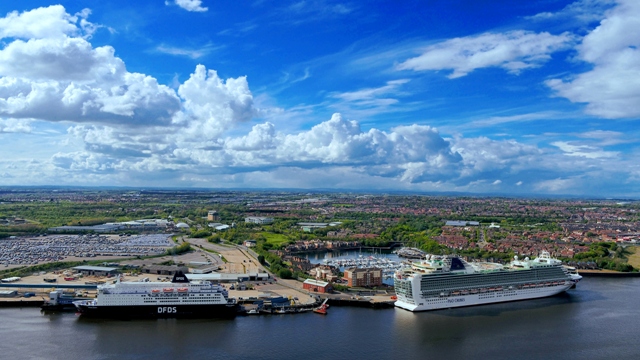
World’s first zero-emission multi-fuel station for hydrogen and electric ships
A consortium led by zero-emission solutions provider Unitrove, which created the world’s first liquid hydrogen bunkering facility, has won thousands of pounds of government funding to explore the development of an innovative zero-emission multi-fuel station (ZEMFS) that would power hydrogen and electric ships.
The novel design concept, which is planned to be operational by March 2025, will use liquid hydrogen as the basis for providing three fuelling options for powering small craft: liquid hydrogen, compressed gaseous hydrogen, and electric charging.
The other winning members of the consortium include ACUA Ocean, manufacturers of hydrogen-powered maritime autonomous surface ships; Zero Emissions Maritime Technology (ZEMTech), a marine-focused project management and delivery company; and the University of Strathclyde, a leading maritime research institution. The project is further supported by MJR Power & Automation, Orkney College UHI, and the Port of Tyne.
The project is part of the Clean Maritime Demonstration Competition Round 2 (CMDC2) launched in May 2022, funded by the Department for Transport (DfT), and delivered in partnership with Innovate UK. As part of the CMDC2, the Department allocated over £14 million to 31 projects supported by 121 organisations from across the UK to deliver feasibility studies and collaborative research and development projects in clean maritime solutions.
CMDC2 is part of the UK Shipping Office for Reducing Emissions’ (UK SHORE) flagship multi-year programme. In March 2022, the DfT announced the biggest government investment ever in the UK commercial maritime sector, allocating £206 million to UK SHORE, a new division within the Department, focused on decarbonising the maritime sector. UK SHORE is delivering a suite of interventions throughout 2022-2025 aimed at accelerating the design, manufacture and operation of UK-made clean maritime technologies and unlocking an industry-led transition to Net Zero.
Steven Lua, CEO of Unitrove, said: “Winning this grant is fantastic news for the consortium, and it is an excellent opportunity to help kick-start the development of a new world-first zero-emission multi-fuel station for hydrogen and electric vessels.
“Everyone connected with the project understands its importance, and it is down to the incredible work and collaboration of all project partners in pulling together such a compelling case that we have been awarded this money.
“The maritime industry is responsible for a significant proportion of pollutants associated with climate change and reduced air quality, and a zero-emission multi-fuel station that can power boats running either hydrogen or electricity is expected to play a significant part in reducing these emissions.”
Michael Tinmouth, COO of ACUA Ocean, said: “The foundation of maritime decarbonisation will be infrastructure for zero-emission fuels. ACUA Ocean are excited to be part of the ZEMFS feasibility study as we look to build the operational, economic, environmental and safety cases for clean marine fuelling solutions.”
Madadh MacLaine, CEO of Zero Emissions Maritime Technology, said: “The foundation of this project is the delivery of true zero emission clean fuels to the maritime industry. This pilot is for vessels under 24 metres, but ZEMFS is fully scalable to any size vessel, and adaptable to any type of port infrastructure. ZEMTech anticipates that the ZEMFS concept will form a foundational building block in maritime shipping’s true zero emissions future, placing UK companies solidly at the forefront of the energy transition in maritime shipping.”Read More–>

